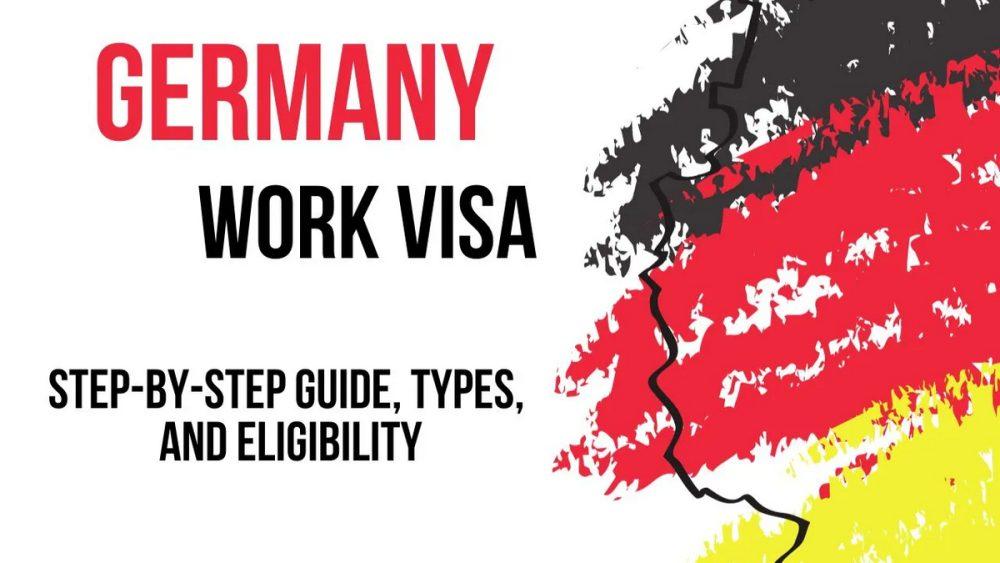Switzerland is not just famous for its stunning Alps or delicious chocolates. The country boasts a robust economy, one of the highest GDP per capita in the world, and is home to various international organizations and multinational corporations. High salaries, excellent working conditions, and a healthy work-life balance make Switzerland a dream destination for professionals. However, working here requires a valid work permit visa, and the process can differ depending on your nationality and the type of work you intend to do.
Like On Our Facebook Page
Switzerland Work Permit Visa 2025 for Bangladeshi Citizens
Switzerland, renowned for its breathtaking scenery, exceptional quality of life, and strong economy, remains a highly sought-after destination for professionals around the world. For Bangladeshi citizens aiming to build a career in Switzerland in 2025, obtaining a work permit visa can open the door to exciting job opportunities in one of the world’s most developed nations.
Switzerland’s work visa system is carefully designed to attract qualified foreign talent while maintaining strict immigration controls. As Bangladesh is not part of the European Union (EU) or the European Free Trade Association (EFTA), Bangladeshi nationals must fulfill specific eligibility criteria to be granted a Swiss work permit.
Types of Work Permit Visas in Switzerland
Switzerland operates a structured, tier-based work permit system. The type of permit you are eligible for depends on several factors including your nationality, the length of your intended stay, and the nature of your employment. Understanding each permit type is essential before applying.
🇨🇭 L Permit – Short-Term Work Permit
The L Permit is designed for individuals planning to stay in Switzerland for a short duration, typically less than one year. It is commonly issued for project-based or temporary employment contracts. If your job continues beyond the original timeframe, this permit may be renewed.
🇨🇭 B Permit – Temporary Residence Permit
The B Permit is the most common option for foreign nationals with long-term employment. It is granted to individuals with contracts exceeding 12 months or open-ended positions. Though valid for one year initially, it can be renewed annually, and it allows for both residence and employment in Switzerland.
🇨🇭 C Permit – Permanent Residence Permit
The C Permit grants permanent residency and is available after five to ten years of continuous residence, depending on your nationality. This permit allows you to live and work in Switzerland without restrictions, offering greater long-term stability and fewer bureaucratic requirements.
🇨🇭 G Permit – Cross-Border Commuter Permit
If you reside in a neighboring country—such as Germany, France, Italy, or Austria—but work in Switzerland, the G Permit is required. This permit allows for cross-border commuting, provided you return to your country of residence at least once a week.
🇨🇭 Seasonal Work Permit
Seasonal permits are issued for work in industries with temporary labor needs, such as agriculture and tourism. These permits are typically short-term, valid for up to six months, and often non-renewable unless continued seasonal demand justifies it.
আরও পড়ুন
আমেরিকা ভিসা পাবার সবচেয়ে সহজ প্রক্রিয়া
কানাডা ভিসা প্রসেস খুব সহজেই ঘরে বসে
ইতালি ওয়ার্ক পারমিট ভিসা অল্প খরচে
দক্ষিন কোরিয়া ওয়ার্ক পারমিট ভিসা সুল্ভ মুল্ল্যে
Eligibility Criteria for a Swiss Work Permit
Switzerland follows a dual system for issuing work permits based on an applicant’s nationality:
🔹 EU/EFTA Nationals
Citizens of EU and EFTA countries benefit from easier access to the Swiss labor market. They do not require a visa to enter Switzerland and can apply for a work permit after securing employment. The application process is relatively simple, and permit quotas for EU/EFTA nationals are typically more generous.
🔹 Non-EU/EFTA Nationals (Including Bangladesh)
Applicants from countries outside the EU/EFTA—such as Bangladesh—face stricter requirements. Key conditions include:
A valid job offer from a Swiss employer
Proof that no suitable Swiss or EU/EFTA candidate is available for the role
Possession of specialized skills or qualifications that are in demand
Compliance with Swiss wage and working conditions
Swiss employers must apply on the foreign worker’s behalf, and the approval process involves both cantonal and federal authorities.
Application Process for a Switzerland Work Permit Visa
How to Secure a Switzerland Work Permit Visa: Step-by-Step Guide (2025)
Obtaining a work permit visa for Switzerland involves several steps, especially for non-EU/EFTA nationals. Understanding the process in detail can help ensure a smoother and more successful application. Here’s a breakdown of the key steps:
✅ 1. Secure a Job Offer
The process begins with securing a job offer from a Swiss employer. This is a mandatory requirement, particularly for non-EU/EFTA citizens.
Before initiating the work permit process, the employer must demonstrate that no suitable Swiss or EU/EFTA candidate is available for the position. Once the offer is finalized, the employer typically starts the permit application process on the employee’s behalf.
📝 2. Submit the Application
For non-EU/EFTA nationals, the Swiss employer submits the application to the cantonal labor authority, along with supporting documents, including:
Proof of the job offer
Company information
The employee’s qualifications and experience
EU/EFTA nationals can enter Switzerland without a visa and may apply directly for a work permit upon arrival, as long as they have a valid employment contract.
🏢 3. Cantonal Review and Approval
Each Swiss canton has its own labor office that evaluates work permit applications. They review applications based on:
Local labor market needs
The foreign applicant’s qualifications
The employer’s justification for hiring a non-local candidate
If approved, the application is forwarded to the State Secretariat for Migration (SEM) for federal review.
🇨🇭 4. Federal Approval
The SEM ensures that the application complies with national labor laws and immigration policies. Once approved at the federal level, the work permit is formally issued.
✈️ 5. Visa Issuance (for Non-EU/EFTA Citizens)
After federal approval, non-EU/EFTA nationals must apply for a long-term (D-type) visa at the Swiss embassy or consulate in their home country. This visa allows them to:
Enter Switzerland legally
Obtain their residence and work permit upon arrival
CLICK HERE for your application link
📄 Key Documents Required for a Swiss Work Permit Visa
When applying for a work permit visa in Switzerland, the following documents are generally required:
Valid passport
Official job offer or employment contract from a Swiss employer
Diplomas, certificates, and other proof of qualifications
Updated CV/resume
Valid health insurance coverage
Proof of accommodation in Switzerland
Completed visa application form (for non-EU/EFTA applicants)
🔍 Tip: Ensure all documents are accurate, complete, and translated into German, French, Italian, or English (depending on the canton).
Processing Time and Fees for a Switzerland Work Permit
The time required to process a Swiss work permit depends on the applicant’s nationality and the type of permit requested:
EU/EFTA Nationals: Processing is generally faster, often completed within a few weeks.
Non-EU/EFTA Nationals: Processing typically takes 8 to 12 weeks, as it involves both cantonal and federal approval stages.
💰 Application Fees
The cost of applying for a Swiss work permit varies by permit type and country of origin but usually falls within the range of CHF 100 to CHF 150. Additional fees may apply for visa processing at Swiss embassies or consulates abroad.
Working Conditions and Employee Rights in Switzerland
Switzerland is recognized globally for its excellent working conditions, competitive salaries, and robust employee protections. Foreign workers enjoy many of the same rights and benefits as Swiss citizens, including:
A standard workweek of 40 to 42 hours, depending on the sector
A minimum of four weeks of paid vacation annually
Access to a high-quality social security, pension, and healthcare system
Equal treatment in the workplace regardless of nationality or background
Swiss labor laws also guarantee important protections such as:
Non-discrimination policies
Maternity and paternity leave
Protection against unjust dismissal
Being informed about your rights ensures you are treated fairly and can fully benefit from your employment in Switzerland.
Conclusion
Obtaining a work permit visa for Switzerland is a vital step toward launching a fulfilling career in one of the world’s most desirable and economically stable countries. By understanding the various permit types, the application process, eligibility requirements, and your rights as a foreign worker, you can confidently pursue professional opportunities in Switzerland.
Whether you’re an EU/EFTA national or a citizen from outside the bloc, Switzerland offers a welcoming and structured environment for skilled professionals across a wide range of industries. With careful planning and the right guidance, your journey to living and working in Switzerland can be both successful and rewarding.
Apply For Australian Work Permit Visa 2026
সকল ধরনের চাকরির খবর এবং যে কোন ধরনের খবর জানতে চোখ রাখুন আমাদের অফিসিয়াল সাইটে ।




